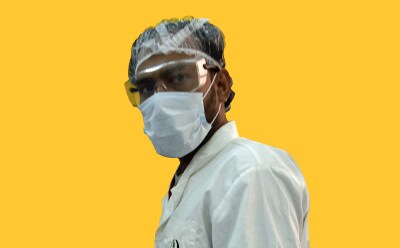Kabidul Azam: My Next Great Impossible

Molecular biologist Kabidul Azam is looking to the natural world to find treatments for diabetes. He told us about his research and why problems in the lab are not necessarily all bad news.
I work in the area of nutraceuticals – medicinal products that are derived from food sources. Currently, we are focusing on the application of nutraceuticals for diabetes, a disease which is expected to affect around 300 million people within the next few years. I am trying to develop a nutraceutical that is able to cure transcription factor gene damage, an occurrence which plays an important role in the disease course of diabetes. I previously conducted a medicinal plant survey to identify plants that already have strong evidence for genetic regulation in diabetes and am now at the stage of performing various bioassays. After this, I hope to publish my findings and, in the future, move to registration for patient trials. I hope my research will eventually bring relief to people with diabetes not only in South Asia, where I work, but also around the world.
“My mentor… is my constant inspiration and encouragement.”
I chose this area of study after previous experience working in pharmaceuticals and analytical development, as well as carrying out research into phytochemicals. I am lucky to have worked with some incredible colleagues in these fields, whose knowledge I really appreciate. At the beginning of my research, I was supervised by Professor Dr. Mohammed Rahmatullah, the top-cited scientist here in Bangladesh. He’s now my mentor and is my constant inspiration and encouragement. My work has also been impacted by Dr. Mohammad Shahedur Rahman, who shares his experience with enzyme technologies, as well as Dr. Nazmul Hasan, who supports me with bioassays. Dr. Hasan in particular has an awesome mentality – he’s helped me several times when I’ve felt depressed about my work.
“…I really enjoy fixing problems in the laboratory.”
Throughout our research, from the bottom to the top, we face all sorts of issues, but I really enjoy fixing problems in the laboratory. Sometimes these arise with an existing protocol, or sometimes they are with instruments that are critical for the quality of our experiment. We have to fix these problems with our existing facilities, and this can sometimes lead to breakthroughs. For example, one problem we have is that reagents are very costly here in Bangladesh. I need the reagent streptozotocin in my work so I am searching for a phytochemical which has the same activity that I can use in my diabetes induction research instead.
FAQ
Q: What kind of mindset do you need to achieve the Next Great Impossible?
A: I have had to learn to enjoy my problems in the laboratory in order to overcome them. They can be tough to fix but they help us to gather more knowledge.
如要继续阅读,请登录或创建帐户。
暂无帐户?